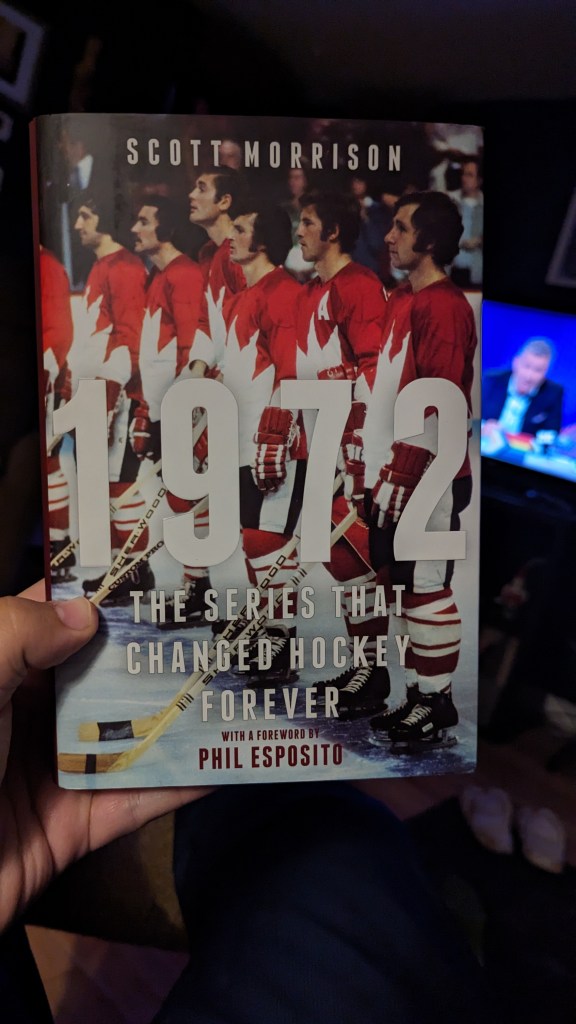
Last year, a deluge of books hit the market celebrating the 50th anniversary of the ’72 Summit Series. If you reside in Canada, but have been living under a rock with your fingers in your ears, you may not know anything about this historic event, so I’ll give you a coles notes. The Summit Series was a hotly contested eight game series between two hockey superpowers at the height of the Cold War. Having beaten just about every international team on skates, the Soviets felt it was finally time to set their sights on the Canadian professionals. Orchestrated by NHLPA boss and agent-to-the-stars Alan Eagleson, a date was then set for the two teams to clash on the ice. Four games would take place in Canada with the series then shifting to behind the Iron Curtain for four additional games in Moscow.
Longtime sports journalist Scott Morrison took up the task of writing a book that both celebrated the event while also trying to avoid sounding like regurgitated material. I mean, there is only so much you could possibly write about the series when countless other books (retrospectives and memoirs alike) have done so over the years. We also have to factor in that this series took place fifty years ago and many of those who participated have since passed on. Could Morrison uncover new material? Is that even the goal?
Having just recently read Gary Smith’s excellent recollection of the series in his 2022 book ICE WAR DIPLOMAT, I still found myself on the edge of my seat during many of the game recaps and the seemingly relentless drama that unfurled from the puck drop in game one right up to Henderson’s miraculous goal in game eight. Morrison interjected a lot of direct quotes from both Canadian and Russian players alike that allowed for the widest possible scope when looking at the effect the series had on not only those in the games but the world of hockey itself.
My only complaint is that after a certain point, I could have done with less of the “democracy vs. communism” talking points that littered the players’ recollection. I understand that politics played a big part in why the series became so heated and the result mattered so much, but I didn’t need someone to hit me over the head with a hammer and sickle every time Phil Esposito spoke about battling back from the edges of defeat.
I enjoyed Morrision’s examination of the WHA v. NHL debacle that kept one of hockey’s greatest players on the sidelines in Bobby Hull as well as a recap from CBC Radio broadcaster Bob Cole and his experiences calling the games (even if most of it is covered in Bob’s memoir from a few years back). I also didn’t know a whole lot about the exhibition games played in between games four and five when Canada played against the Swedish national team. There is also a touching story surrounding Stan Mikita and his return to Prague to play in front of his family after having been forced to leave Czechoslovakia around the Second World War.
This will likely be the last book I read on the series as I would be hard pressed to venture into the series a third time (although I do intend on watching the acclaimed CBC documentary). In closing, it is always worth reminding people to never forget that Harold Ballard was a rotten bastard.


